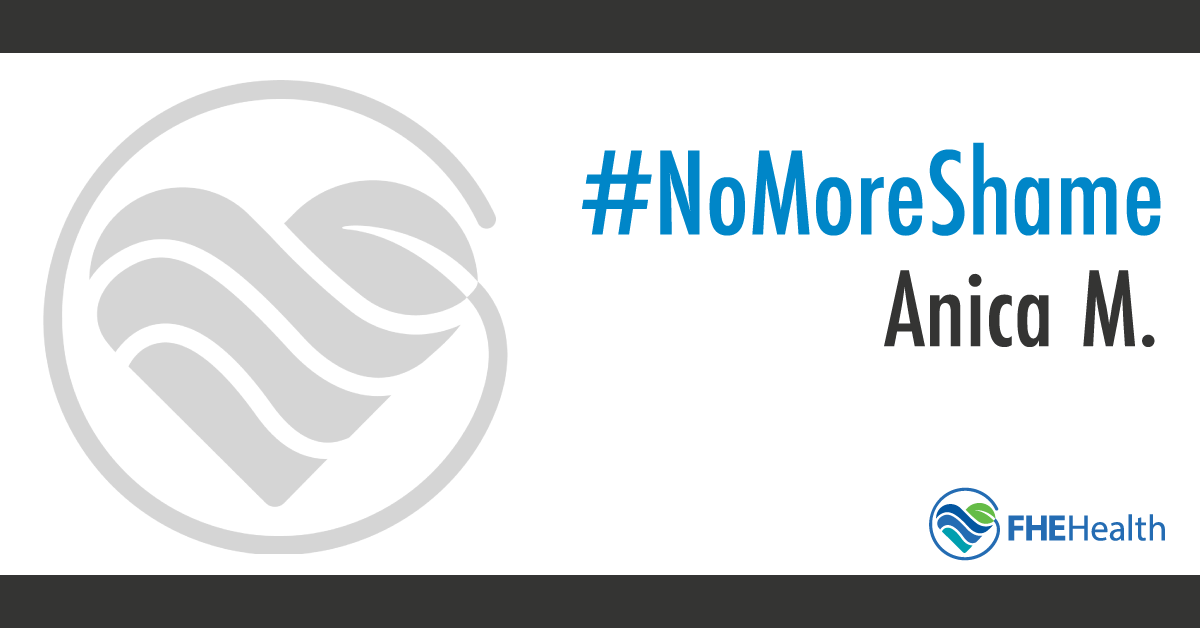
Anica M. first knew something was wrong when she began having trouble driving: “Whenever I was driving, I felt like I was going to black out, and my heart was racing. I’d get headaches.”
Anica’s job at the time involved driving eight hours a day, and these episodes soon began to impair her ability to get to work and do her job. Her 45-minute commute became a three-hour ordeal.
“By the time I got to work it was time to go home,” she recalled in an interview.
Stress-Related Anxiety and Depression
Looking back, Anica attributes these episodes to stress. “I had been in a fight or flight mode for a while,” she said, and these “PTSD-like” symptoms had developed over the course of 10 years.
The new commute, coupled with panicky feelings about being behind the wheel, proved too hard to maintain. Anica interviewed for a new job and was promoted.
At home, Anica began experiencing depression for the first time. It manifested as trouble getting out of bed in the morning, a lack of motivation for bathing and brushing teeth, and avoidance of any activities that might require leaving the house.
The Turning Point – A Therapist Who Recommended Treatment
The turning point came when Anica’s new therapist encouraged her to seek inpatient treatment. By this time, Anica had been to the ER more than once for panic attacks. Her heart would start racing, and upon admission to the hospital, she’d be treated for high blood pressure.
Anica’s therapist “helped solidify the idea regarding treatment.” “I never would’ve thought about treatment, but just knew I needed to get better,” Anica said.
When it became clear that her symptoms were only getting worse and she “wasn’t driving, getting out of bed, or bathing or eating,” Anica sought treatment. “And I just kept getting worse, and that’s not how I normally am,” she said. “I am usually independent and didn’t know how to get out of it.”
“When I called FHE Health, the young lady who took my call was pleasant and compassionate,” Anica recalled. She felt more warmth on the line than she had with other facilities.
But Anica was hesitant to start inpatient treatment — “I cried my first couple of days at FHE” — but she knew “that’s what I needed to do to “get out of bed, brush my teeth, and drive again.”
Tools from Treatment and Life in Recovery
During treatment at FHE Health, Anica gained new tools for managing the anxiety and depression. Meditation, deep breathing, positive self-talk, and exercise were especially helpful. She also discovered the healing power of time spent in nature.
Anica continues to use all these tools in life after treatment. And, she has come to appreciate the supportive community of Alumni meetings and service opportunities organized by FHE.
Today she has a new job, one that is thankfully less stressful, and is driving again.
This doesn’t mean life is perfect. She still has the occasional moment on the road when her anxiety gets triggered.
“I did have a moment where I was driving to go back to work and where I did have to stop and pull off the highway,” she said.
Now, though, she can recognize when the anxious feelings start. It registers as “a warm sensation that goes through my body.” That is a cue “to pull over into a safe space, take a bathroom break, and do deep breathing or positive self-talk.”
What’s Worthwhile About Life in Recovery
Life in recovery has been well-worth going to treatment: “For me, knowing where I was, it was worth it to get to where I am and while in treatment to put in the hard work and go through the emotions, the crying, the sharing of my story —I don’t usually share my story unless I feel like I can trust you — all of these things were worth it.”
“There are days when you have sadness or moments where you don’t feel like getting up – that’s when you should push harder and continue,” Anica said. She added that her family makes life in recovery worthwhile and that she needs to be healthy before she can help those around her.
Last Words of Encouragement for Anyone Struggling
If Anica could offer any word of encouragement to someone who is struggling with a mental health issue like anxiety and depression, what would it be?
“I would tell them, ‘You’re not alone,’” she said. “And that it’s to their benefit to seek help and take it seriously, so they can get back to their daily life … I also pray on a regular basis, and my hobby is singing. Singing has gotten me through a lot. I’d also say to share in groups. It helps you heal, and it also helps others more than you may ever realize.”
Her main takeaway? That “anyone and everyone can go through a mental health struggle. Just because it’s happening, doesn’t mean you’re different than someone else. You just have to be willing to get help for it.”
Struggling with anxiety and depression? Our counselors are available 24/7 to help you start feeling better. Contact us today.






